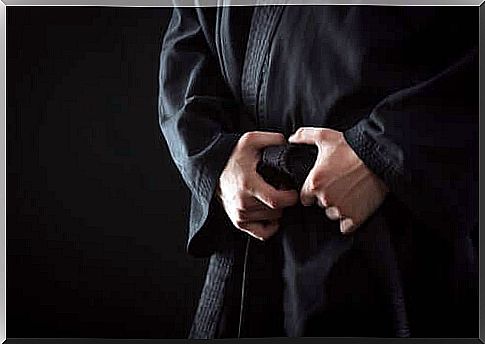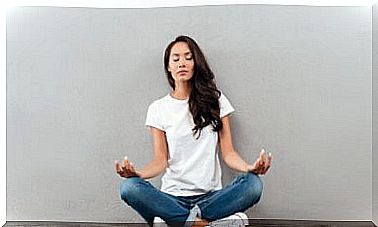Self-defense According To Eastern Philosophy

There are times in your life when you need to be able to defend yourself. Therefore, it is good to know about self-defense according to Eastern philosophy.
No matter how peaceful you are, sooner or later you will find yourself in a conflict where someone is trying to attack you or limit your ability to act in a certain way. Or maybe someone will insult you in some way and you will feel like you have to react.
The most common reaction to aggression or insults is to attack again. Someone is yelling at you, so you are yelling too. Or someone is physically attacking you and you are reacting in the same way. This is the obvious reaction because there is no real guidance in the Western world on how to defend oneself in any other way.
Eastern philosophy, on the other hand, has given much thought to war, struggle, and conflict. Martial arts is just one of the results of this and self-defense is a key aspect of it. If you want to learn something about self-defense according to Eastern philosophy, in the form of martial arts, read here to discover some of the main aspects.

The philosophy behind self-defense
Martial arts avoids confrontation, except when it is the last resort. That is the essence of their strategy, both in terms of attack and defense. All of these tactics involved are about neutralizing one’s opponent or simply convincing them not to fight in the first place.
Everything one does or says in self-defense must follow the basic principles of not destroying, harming or humiliating one’s opponent. If one does, it will glot increase their desire for violence. But remember, that is not the goal of martial arts; the goal is harmony.
Eastern philosophers knew that conflicts always come at a high price. When harmony is broken, the best thing to do is to find a way to achieve it again. It is not to intensify the problem or drive it further. This is the first principle you need to keep in mind in order to learn self-defense according to Eastern philosophy.
Attitude is fundamental in self-defense according to Eastern philosophy
If you are in a situation of physical aggression, Eastern philosophers recommend that you remain calm. That calm should be present in your body as well; it should look relaxed, not tense.
It is something you can achieve with training and controlling your breathing. If you take slow, deep breaths, your muscles will not become as tense.
The art of defending yourself from physical attacks also involves the following actions:
- Keep as much distance from the opponent as you can.
- Do not make mechanical or automatic movements; always move with intentions.
- Step back and think, and try to understand where the other person is coming from.
- Learn to fall and get up again.
- Try using your peripheral vision to get a perfect picture.
- Keep your body straight, with your feet firmly on the ground. However, your muscles should still be relaxed.
This is a very simple version of what martial arts says you should do during a conflict. All of these points have a specific philosophy behind them and require several years of practice. But that does not mean that you can not use them as a useful framework and as a guide when you practice.
Physical attacks are also very similar to verbal attacks. They involve similar mechanisms and only the tools are different. As a result, you can actually apply the same basic principles of physical self-defense that you can with verbal attacks.
Verbal attack
Eastern philosophy says that you should never let anyone insult or humiliate you verbally. But that does not mean you should react with the same tactics. There are other strategies you can apply.
Many of them actually involve body language. You want your body to send a message of stability and calm. Here are some tips for posture and actions:
- Look directly at the verbal attacker for a moment, then make your gaze gently without looking down.
- Look at the other person with a confused look and step back. Do not hang; keep your body straight.
- Do not avoid eye contact, no matter how uncomfortable you are in the situation.
- Finally, do not speak if the other person is not listening.

If you are understanding and compassionate enough towards the other person, you will know how to defend yourself. Of course , you must first know yourself, understand yourself, and know how to convey your own emotions in order to do so.
Self-defense according to Eastern philosophy when faced with verbal attacks
If you find yourself in a verbal confrontation, these are the three strategies of self-defense according to Eastern philosophy:
- Step back. This is a good choice when the other person’s attitude or situation makes you think it will not end well. It either means not saying anything, going or changing topic.
- K ald ceasefire. You should do this when you see that the other person is reasonable or seems to be hurt by the conflict. In this case, you should try to reach an agreement.
- Do nothing. This is what you should do if you feel their attack is unsolicited or you are not sure they are in their right. In this case, you stand still and say nothing, ideally with your eyes closed.









